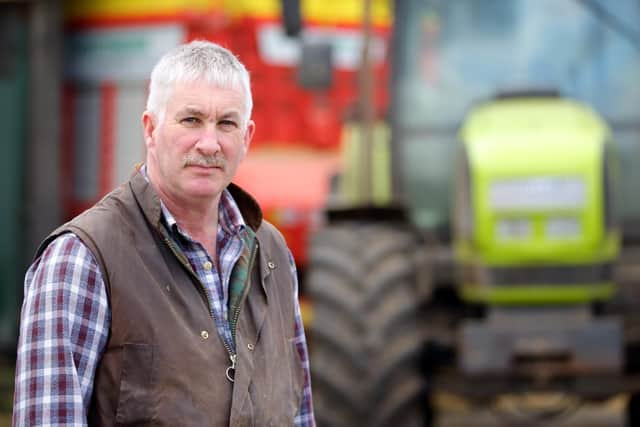Trade deal is finalised leaving local agriculture in an ‘extremely vulnerable situation’ - UFU
and live on Freeview channel 276
The deal is similar to the agreement with Australia that was signed in June 2021, eliminating tariffs for agricultural products.
Commenting on the new deal, UFU president, Victor Chestnutt, said the UK government has left local agriculture in an “extremely vulnerable” situation, with sensitive sectors such as lamb, beef, dairy and horticulture being put “most at risk”.
Advertisement
Advertisement
“We had serious concerns after the trade deal with Australia was agreed, that New Zealand would demand similar terms, and this is exactly what has happened,” Mr Chestnutt stated.


“Tariffs for agricultural products will be done away with meaning, in time, New Zealand will have no limits on the volume of products they can export into the UK.
“I can see very little benefit in this new trade deal for our consumers or farmers, while producers on the other side of the world will get full access to our valuable market in due course.
“Consumers who want to continue purchasing high-quality locally produced food to world-leading environmental and animal welfare standards, will see our market becoming inundated with exports while our farmers struggle to compete.
Advertisement
Advertisement
“Production costs for NI farmers are much higher than their counterparts in New Zealand, the continuing sharp rise in feed, fuel, fertiliser and energy prices is continuing plus ongoing labour shortages.”
The UFU president continued: “New Zealand is one of the most export-orientated countries in the world and the UK government is exploiting our farmers in their own home market if they do not provide the much-needed, long-term, necessary support to make it a level playing field.
“The investment that local farmers need now, is the kind of strategic funding that has made New Zealand one of the world’s strongest food exporters in recent years.
“It’s important that we harness the opportunities that these new potential trade deals present to build and strengthen our agri food industry, but it requires continuous engagement between our industry and the government, plus appropriate investment – both of which we’re currently lacking.”
Advertisement
Advertisement
Mr Chestnutt has called on the government to “urgently develop a coherent approach across all its departments” in order to protect NI’s primary producers and support them in becoming competitive food producers, “especially at a time when food security is becoming an increasing concern globally”.